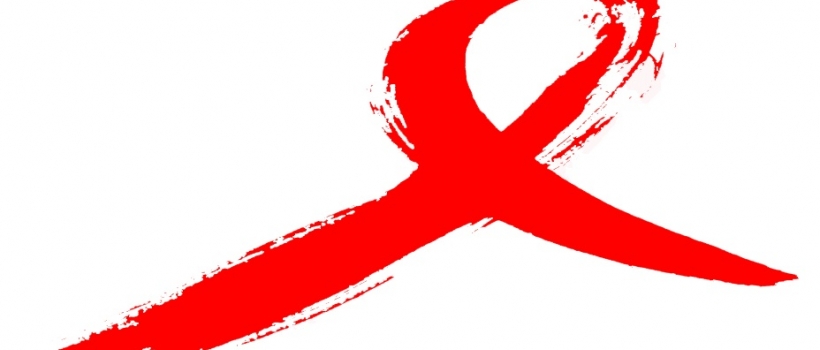On World AIDS Day, we invite you to read this blog by Ben Siegelman of our Health Promotion team on how Mary’s Center is making a difference.
“Every time I take my medicine, I cry. Every day, I have to take this little pill and remember that I have the disease.” This is what HIV stigma sounds like, and for many it is a part of daily life. Stigma is a sense of disgrace connected to a circumstance or a personal trait. It can come from any number of sources: social pressures, religious beliefs, personal histories, or widespread prejudices. No matter the cause, though, this sense of shame and guilt is a primary factor in a person’s emotional wellbeing, engagement in medical treatment, and health outcomes.
In the Mary’s Center HIV Wellness Program, we see participants who face stigma from their families, their churches, their friends and their jobs; and we use our interdisciplinary model as a foundation for building healthier, happier communities.
Mary’s Center uses a holistic approach to address the complex needs that create barriers to health. Our Social Change model helps participants build health through greater access to medical care, social services, and education. In the HIV Wellness Program, we bring this same multi-pronged approach to our participants living with HIV.
When working with someone who faces HIV stigma in their daily life, we provide medical treatment through our Infectious Disease doctors, but we accompany this with a wide range of support services: Health Educators to help a person understand their health condition, an HIV Navigator to help make sense of the healthcare system and find the appropriate resources available to them, and an HIV Peer Wellness Advocate to provide experience-based counseling and the uniquely empowering support that a peer can offer.
Our participants also have access to the full range of Mary’s Center services, including Social Workers and Mental Health Specialists, ESL classes, Public Benefits Assistants and the medical and dental care that Mary’s Center is known for. Combined, these services create a support system that puts the participant in position to take control of their next steps.
But what about stigma? What do we do when a participant’s social pressures and personal anxieties are the barriers to wellness? What if, for example, someone can’t take their medicines because they don’t want their family to find out about their HIV status?
Well, this is where Mary’s Center’s holistic approach to health comes in handy: we use all the resources mentioned above to build a person’s strength in the face of stigma.
First, we educate: What is HIV? What isn’t HIV? What misconceptions and common falsehoods can we correct? And how can you stay healthy while living with HIV? In our HIV Wellness Program, we’ve found that building a person’s resilience to stigma relies on Health Literacy: the degree to which someone understands information about health, can use that information to make appropriate decisions, and can utilize the healthcare system to enact those decisions and reach their own goals. Given the accurate information, and with the support of mental health counselors and social workers as needed, ourparticipants become teachers to their friends and families, and advocates within their communities. We’ve seen participants of the HIV Wellness Program advocate for themselves with doctors, at work, with landlords, in their families – even while in labor at the hospital! When a person overcomes stigma like this, they take control of their own wellbeing, and they realize how much power they have.
And, if you think about it, this is how all Mary’s Center operates. Stigma can come in so many forms: people are stigmatized for their skin color, their gender identity, their nationality, their language, their economic position, and their immigration status. At Mary’s Center, we fight these social pressures every day, through the very same tools discussed above: holistic wrap-around services, an education-focused Social Change Model, and culturally appropriate, peer-oriented service providers.
This is the Mary’s Center way, and our HIV Wellness Program has built on the success of this model.
The results? Well, we know we’re doing something right when a man learns he’s living with HIV, and walks out of the very same appointment with a smile on his face, relieved to learn how healthy he can be.
Ben Siegelman is the Mary’s Center HIV Wellness Program Coordinator, HIV Navigator, and a Life Cycle Health Educator with the Health Promotions Team. He’s taught and worked on health projects in a number of settings, including New York City schools, adult education classes in Texas, and rural farming communities in Malawi. When not working with patients in the clinic or providing Navigation and Counseling services to clients living with HIV, Ben can be found playing beach volleyball near the Lincoln Memorial- weather permitting.
Founded in 1988, Mary’s Center is a community health center in Washington DC that provides health care, educational and social services (including prenatal care, family dental care, mental health services and ESL classes) to more than 41,000 individuals from 47 countries. Using a holistic, multiprongedapproach, Mary’s Center helps each participant access individualized services that set them on the path toward good health, stable families, and economic independence. For more information please visit: www.maryscenter.org.
Photo credit: BestFreeJPG.com

